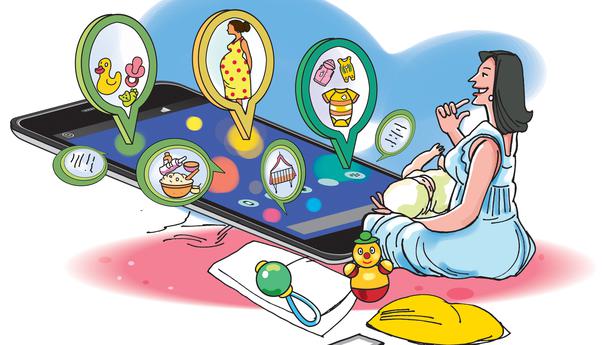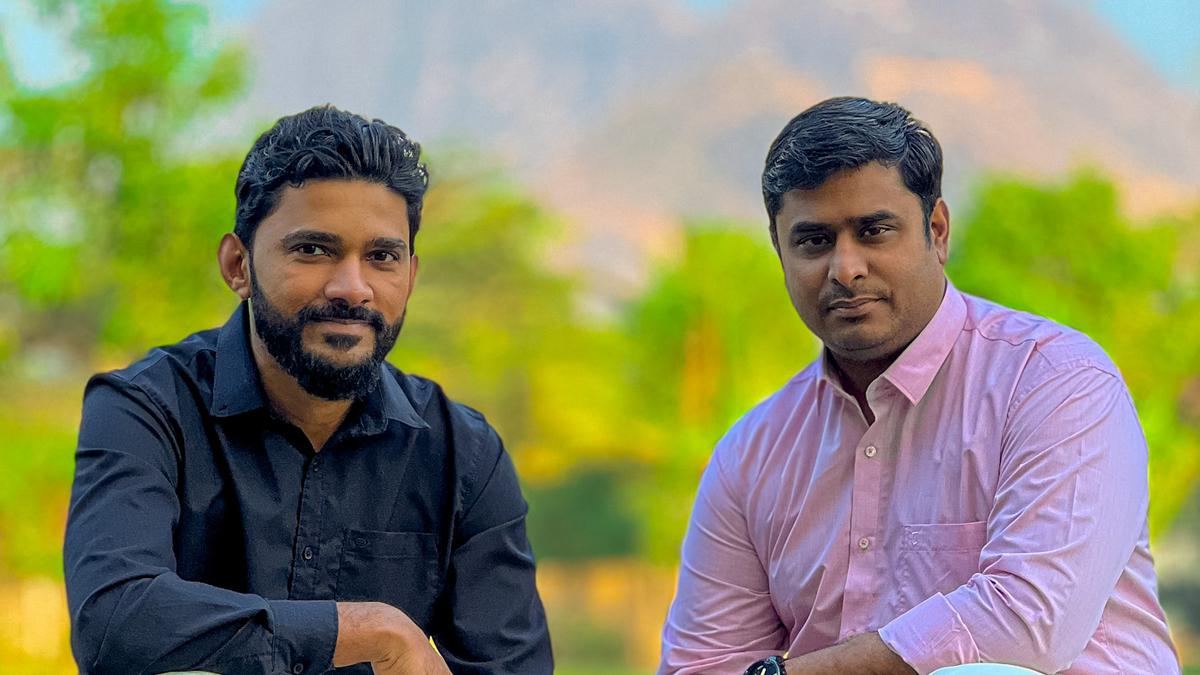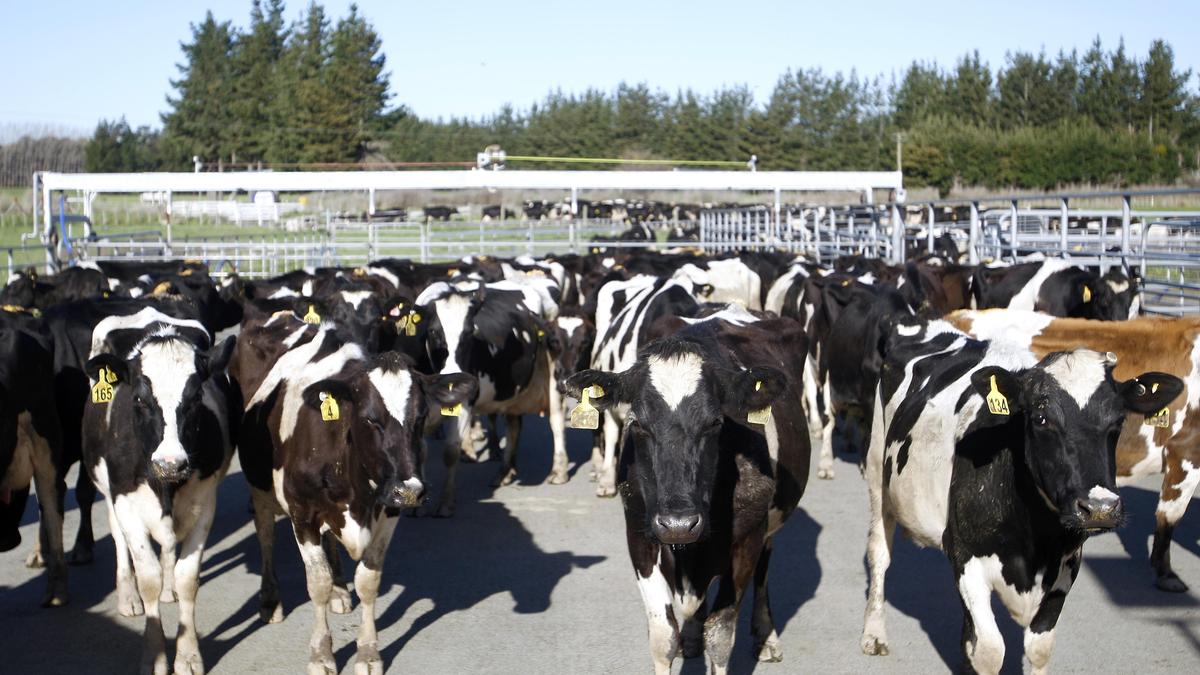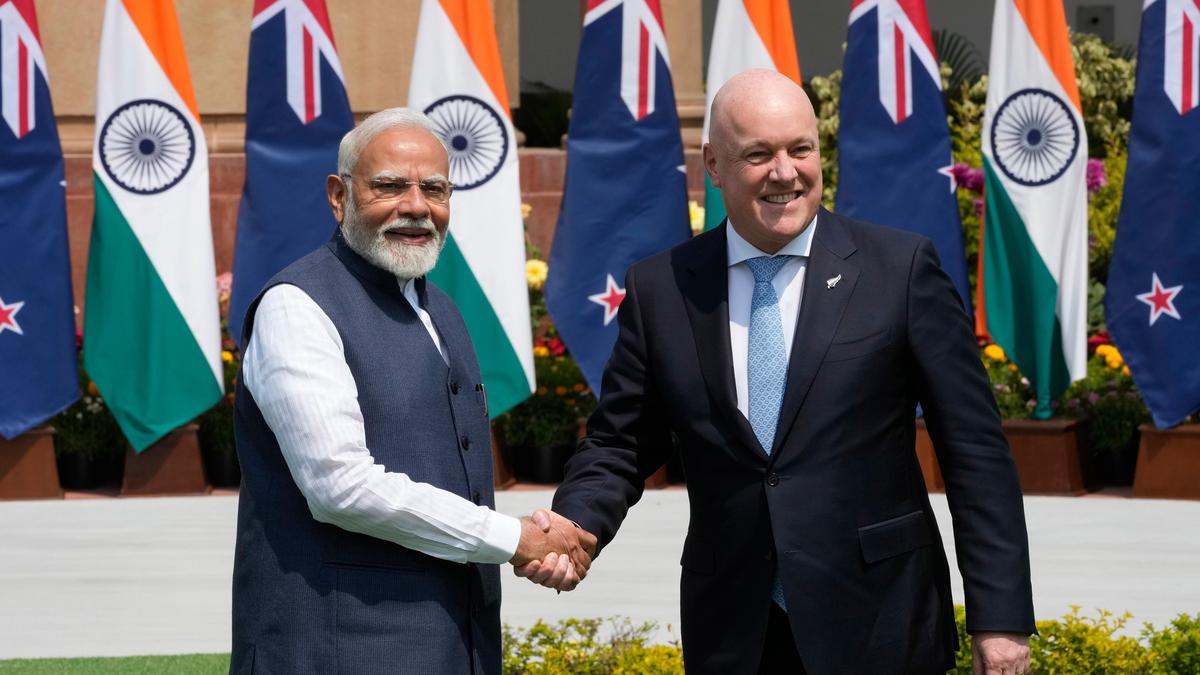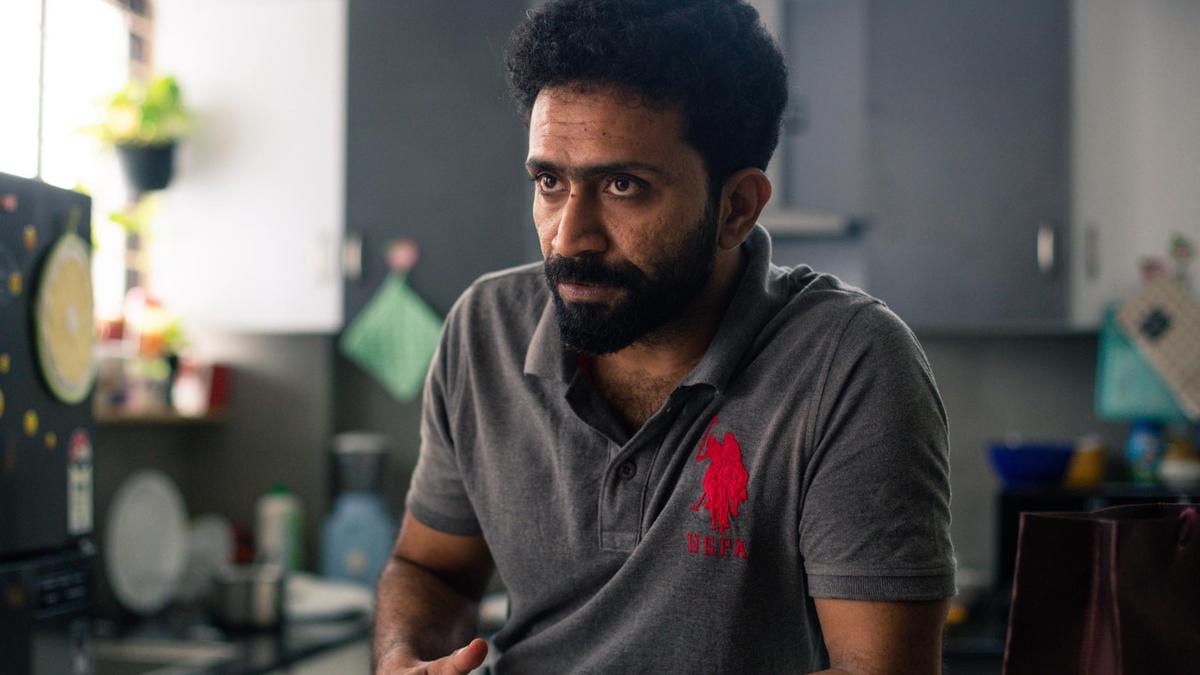Why WhatsAapp and Facebook communities are the go-to resource for first-time mothers, especially in a post-lockdown world
Why WhatsApp and Facebook communities are the go-to resource for first-time mothers, especially in a post-lockdown world
In February 2022, Jaipur-based Almas Hussain found herself struggling to nurse her then month-old daughter. With no parental support, the first-time mother sought the support of fellow mothers on a WhatsApp group. “My baby is a rainbow baby (born to someone after a pregnancy loss) and I was constantly overthinking the small things. Being a new parent is a rollercoaster ride and the group guided me on everything from nursing and cough remedies to starting solids,” says Almas, 30, of the group, Bubs and Mumz, created by Yahanka Nayak in March 2022.
Almas is among a growing crop of mothers who are now turning to the digital world as they navigate the motherhood maze. Be it Facebook, WhatsApp or Instagram, the tribe is only increasing and the several threads — discussing everything from home remedies for a rash, product reviews for high chairs, diet charts, and the rather painful topic of sleep routines — are proof. Bengaluru-based Yahanka, 31, a Cognitive Behavioural Therapy (CBT) coach by profession, says she created Bubs and Mumz when she realised there was a lot of mixed information on how to introduce solid food to babies.
Vaishali Sudan Sharma, who runs popular interactive parenting blog The Champa Tree since 2014, says it was the lack of credible resources for pregnant and new parents that prompted her to kickstart a blog. “From being a communications consultant dashing in and out of fashion shows and events, pregnancy in 2013 slowed things down for me. I felt there was very little ‘real’ content being written about pregnancy/parenthood. I started the blog when my son was three months old, and also worked as a PR consultant remotely,” says Vaishali, who, started looking for full-time jobs when he turned three, but realised many recruiters questioned the gap years without recognising the careers she had managed from home alongside raising a child. “In no time, the blog was monetised and there was no looking back. I partnered with a like-minded team on a freelance basis, and today, we have close to 2 lakh views a month, and also run communities on Facebook and WhatsApp.”
Sleep training and solids
While the group started off as a resource for solids, it has evolved into a safe space for women to discuss any issue along their parental journey. The focal points being baby-led weaning, traditional weaning, travelling with babies, recipes, says Yahanka, who is now working on an app. “I had no idea we would come this far. Such groups are a blessing as mothers need the freedom to ask questions without being judged,” she says.
A mother feeding her baby
| Photo Credit: Getty Images/iStockphoto
And most importantly, quick answers for when they are alone or a doctor is not available. Situations that prompted Maheen Arab to create Mamahood India – A Support Group For New Moms on Facebook last year. “I created the group during my pregnancy with the intent to save reference articles to keep handy for the baby’s arrival. However, in October 2021, post the birth of my daughter, the group became active. As family members couldn’t travel due to pandemic-induced restrictions, I tried to figure out parenting through online sources, asking experienced friends and family along with my husband,” says Maheen, 32. “Being on the brink of postpartum depression inspired me to create Mamahood India, and connect with new mothers,” adds the Pune-based healthcare consultant who has over 630 members on the private group today.
With a focus
While these all-encompassing groups are perfect for new mothers getting their way around the many facets of pregnancy and motherhood, the community is now seeing several offshoots with a single-point focus. Like The Baby Support Co., a group specialising in baby sleep created by Aishwarya Deshpande in May 2022. “I had recently started designing my baby’s schedule that was enabling her to sleep through the night, and I responded to a fellow mom’s query on sleep patterns on a WhatsApp group. Soon, I had several mothers reach out to me for the same issue and I realised infant sleep was such a common problem. For ease of communication, I started a separate group where I could help moms at large, and we soon branched out to potty training too” she says of the group with over 252 members.
A similar platform that is helping streamline information for new mothers overwhelmed with the gamut of resources online is Breastfeeding & Pumping support : India. It was started in 2018 by Hannah Grace, a registered nurse and midwife, who was depressed after facing hiccups in her breastfeeding journey. “My personal experience coupled with the difficulties faced to get appropriate help made me sensitive to the needs of other mothers,” says US-based Hannah, who went on to become a certified lactation educator.
The pandemic parents
Social media support groups for parents might not be new, but for a majority of these recently-formed communities, it was the pandemic that brought them together. Pooja Mankani, 40, a member of Mamahood India, says her delivery during the peak of the pandemic was a challenge. “Shops had depleting stocks and I remember being anxious and wondering if I would find what I needed for my girl. Also, we couldn’t get a doctor to see her after our discharge,” says the Canada-based first-time mother was diagnosed with postpartum anxiety, depression and rage three weeks later. “ I have high gratitude towards the health care system in Canada where mental health is prioritised, and I now have my anxiety and OCD in control,” she says.
Closer home, for Yahanka, who got pregnant during the pandemic phase, tackling a high-risk pregnancy during lockdown was a challenge. “After a life-threatening ectopic pregnancy and miscarriages in the past, Yahvi is my rainbow baby. She was borderline weight, and my husband and I struggled to feed her. We also have a pet at home who did not accept the new member that easily. We had no support during the lockdown, and I barely slept. Some days would begin and end in tears.”
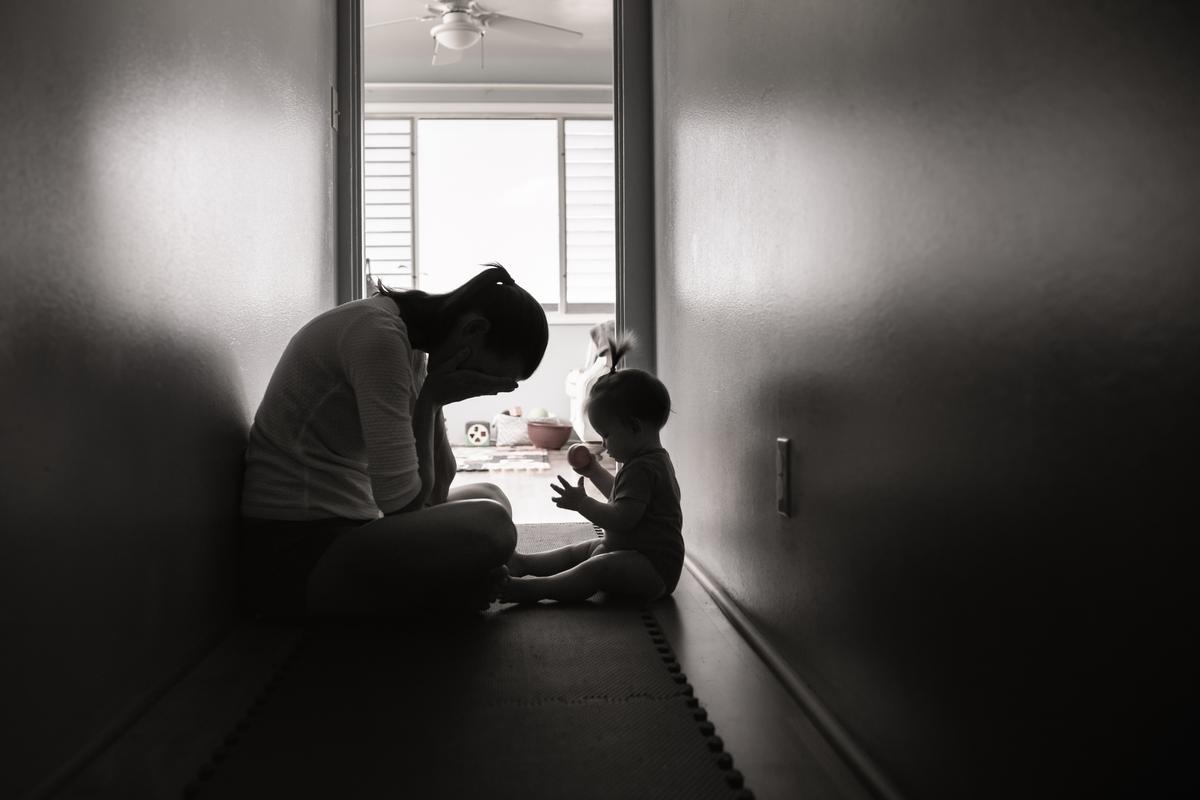
For many mothers, the lockdowns were especially challenging
| Photo Credit: Getty Images/iStockphoto
With hospitals restricting visitors and partners in the delivery room, many mothers were forced to birth in isolation. Like Maheen, whose parents and in-laws couldn’t travel when she was in labour. “A lot of hospitals required a negative RT-PCR at the time of admission, so during the last leg of my pregnancy, I used to get a test done every four days in case an emergency came up. During my entire labour of 10+ hours, I didn’t have any family beside me, and eventually had to go through an emergency C-section.”
Admin challenges
Maheen says such platforms not just function as a repository of valuable and informative data, but also play a vital role in creating awareness and imparting guidance to new mothers who struggle to cope with the sudden transition. Having said that, managing it all comes with a fair share of challenges too. “The most difficult task is to try and keep the group safe from prying eyes, which includes filtering fake profiles and running random checks to ensure only women are a part of the group,” she says.
For Preeti Rajulapudi, who runs Pregnancy Support Group – India along with Sneha Munta, approving query posts and membership requests is a time-consuming task. “We are a community of 6,000+ people and receive 40-50 new joinees every week. We also have a strict rule of no promotions on the group, so we need to screen all the posts before approval,” says the 34-year-old digital marketer, who kickstarted the group with Sneha in 2020 with just three or four of their friends.
A mother of two, Preeti recalls her first pregnancy in 2015, when she shied away from asking her physician questions on breastfeeding, parenting, etc “as I didn’t want to sound stupid or uninformed”. “I would spend hours every night researching the Internet and I was sure that there would be many in my situation as well and I wanted to create a community. Things hit pause after my son was born, but during my second pregnancy in 2018, I felt a lot more confident and decided to create the group.”
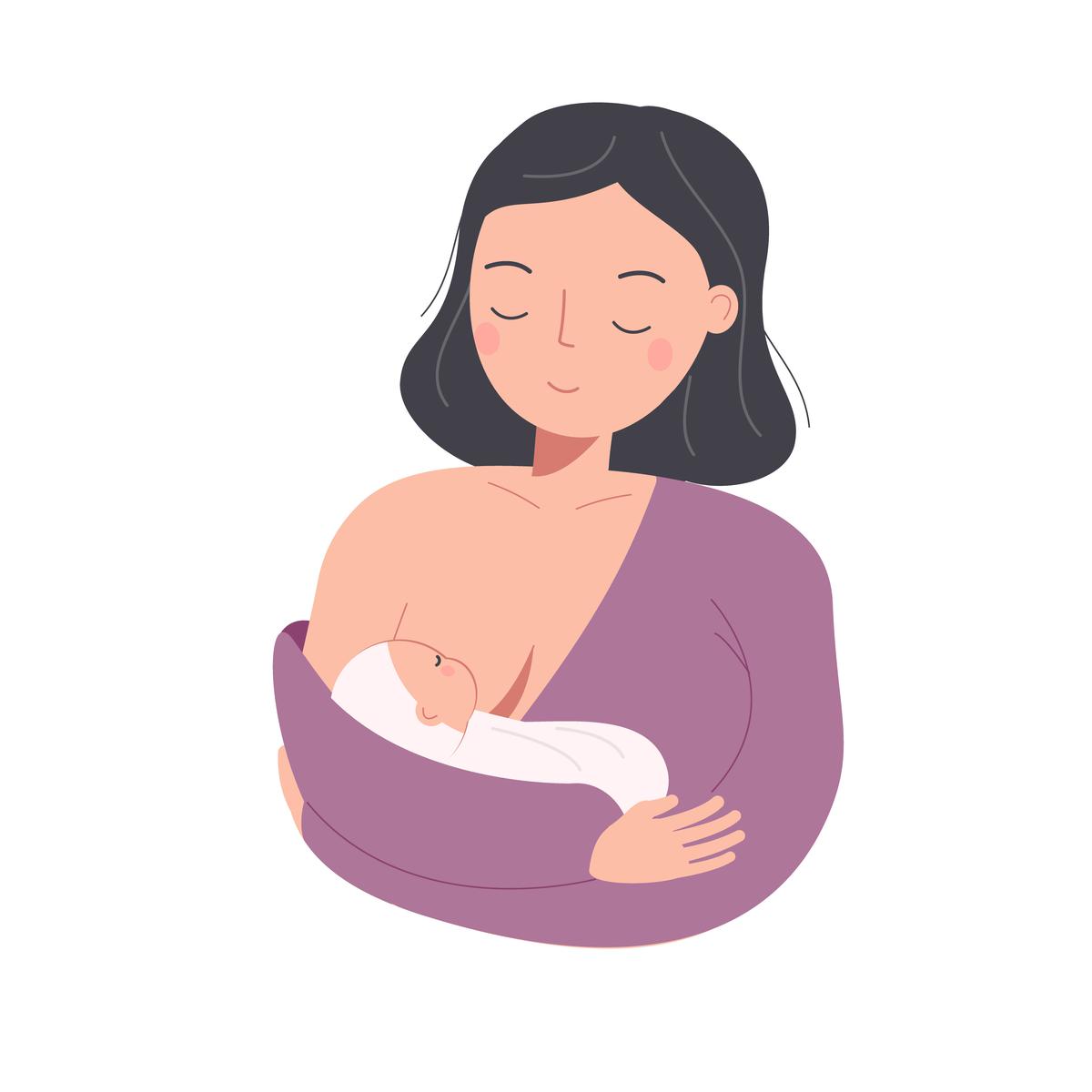
Having built The Champa Tree for over eight years, Vaishali says the most challenging part “is to say no to specific brands and agencies”. “They push for barter deals, or free content, and our platform, like many others, spends on SEO, annual domain site costs, etc. To explain the process is challenging.”
Sydney-based Chaitali Dhua, an admin of Cloth Diapering India (CDI) on Facebook (founded in 2014 by Chinmayie Bhatt), says most new parents come to the group looking for a quick answer. “The most common question asked is ‘which is the best diaper for my baby, please recommend’ — while it is understandable in the current age of high consumerism and short attention spans, it is really our biggest challenge. To teach new parents to be patient with themselves and give the time required to learn the basics,” says Chaitali, 36, of the group with over 25,000 members. “With many brands in the Indian market we do find it challenging to keep conversations neutral and helpful, instead of promotional. Many people want shortcuts and want to know the ‘best’ diaper without doing any research,” says admin Debashree Pal.
Turning professionals
For many admins, putting in significant research to answer queries has resulted in a long-term, professional relationship with the subject. Aishwarya, who studied a lot about baby and infant sleep, initially started off by helping fellow mothers streamline their baby’s schedule and found that it worked for many. “I am now getting an infant sleep certification,” she says, adding that she plans posts in advance, and is on the constant lookout for relevant topics.
With over 11,000 members today, Hannah’s breastfeeding group has grown to include nurses, midwives, lactation professionals, health educators, and mental health professionals on the team. “We offer free virtual meet-ups every Thursday with lactation professionals,” she says, adding how the focus is on providing care during the first 1,000 days of life, starting from the pregnancy (lasting 280 days) through the first two years of the child’s life. This, as any new mother will say, is just what she needs.


